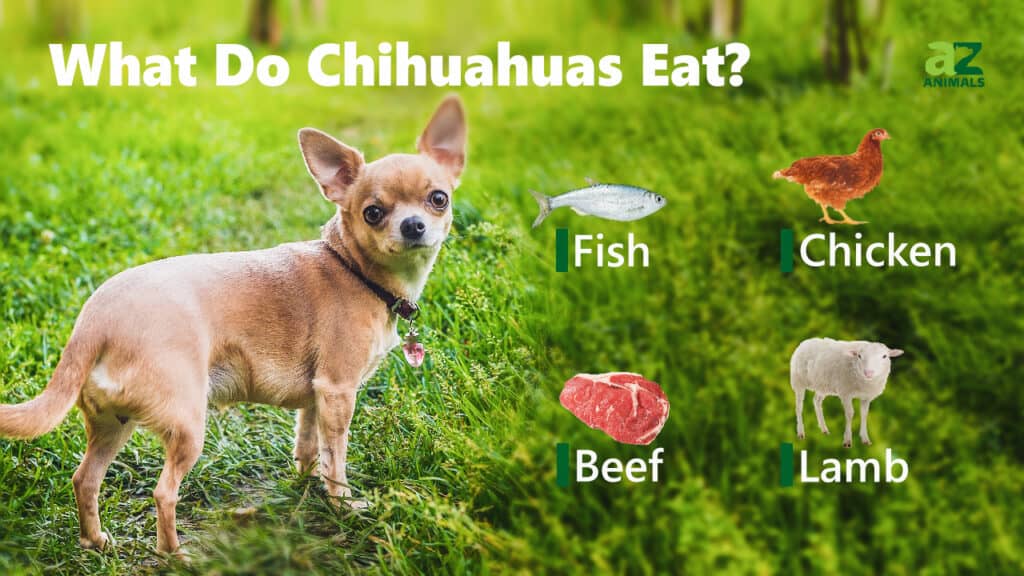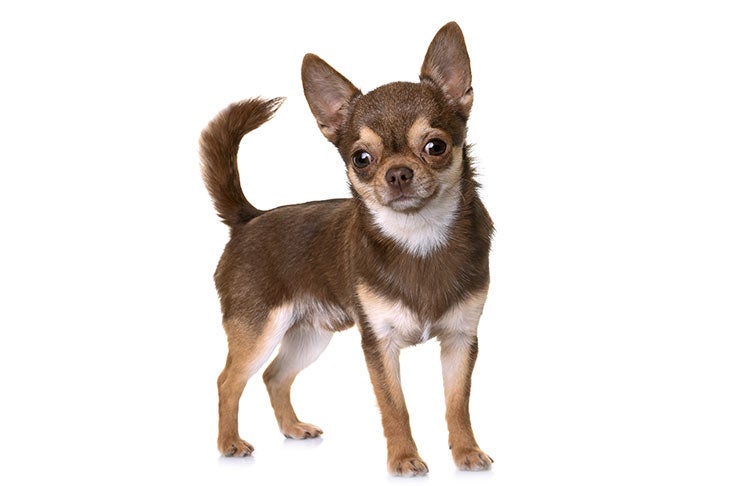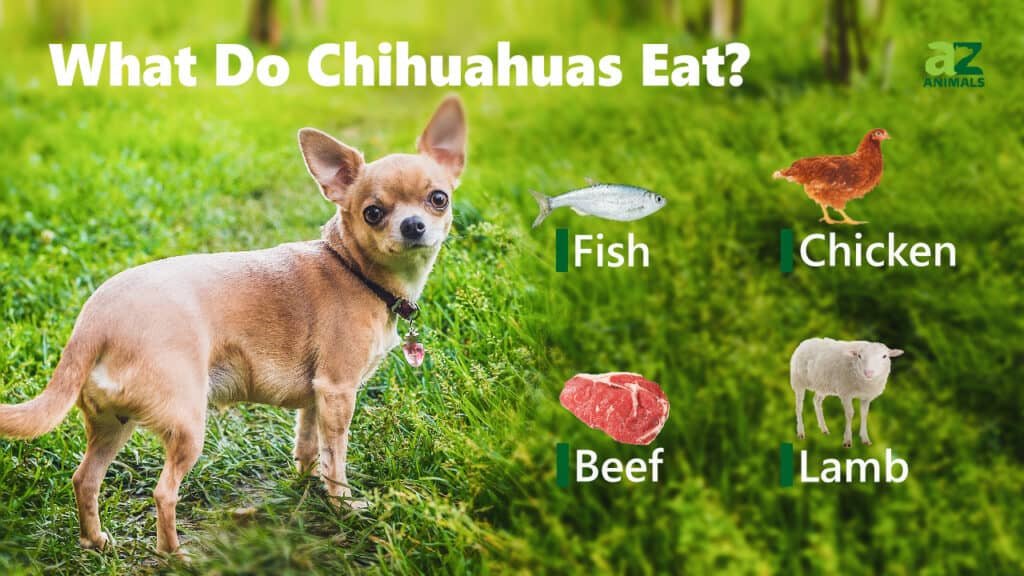As a chihuahua owner, I was surprised to learn about the many foods that are harmful for my furry friend. Did you know that chihuahuas should never consume chocolate? This sweet treat can be highly toxic to them, as it contains a substance called theobromine that can cause vomiting, diarrhea, and even seizures. It’s essential to keep these tempting treats safely out of their reach to ensure their health and well-being.
When it comes to the diet of your chihuahua, it’s crucial to be mindful of the foods that should be avoided. Along with chocolate, chihuahuas should not eat onions, garlic, grapes, raisins, or avocados as these can be toxic to their system. Additionally, certain artificial sweeteners such as xylitol can cause a rapid drop in their blood sugar levels, leading to weakness, seizures, and even liver failure. Feeding your chihuahua a balanced and nutritious diet, tailored to their specific needs, is key to keeping them happy and healthy.
As a Chihuahua owner, it’s important to know what foods to avoid giving your furry friend. While every dog is different, there are some common foods that can be harmful to Chihuahuas. Keep them away from chocolate, grapes and raisins, caffeine, onions, and garlic. These foods can cause various health issues like vomiting, diarrhea, and even kidney damage. It’s always best to consult with your veterinarian if you have any concerns.

What Can Chihuahua Not Eat? A Guide to Keeping Your Furry Friend Safe
Chihuahuas are small, adorable dogs known for their big personalities. As a responsible pet owner, it’s crucial to ensure that you provide your Chihuahua with a balanced and nutritious diet. While there are many food options that are safe and healthy for Chihuahuas, there are also certain foods that they should never eat. In this article, we will explore what foods are harmful to Chihuahuas and why, so you can keep your furry friend happy and healthy.
1. Chocolate: A Toxic Treat
Chocolate is a delightful indulgence for humans, but for Chihuahuas, it can be extremely dangerous. This sweet treat contains a substance called theobromine, which is toxic to dogs. Theobromine can lead to symptoms such as increased heart rate, seizures, vomiting, and even death in severe cases. Dark chocolate and baking chocolate have higher theobromine levels, making them even more harmful than milk chocolate. It’s essential to keep all chocolate products out of your Chihuahua’s reach and be cautious about any foods that contain chocolate as an ingredient.
Why is Chocolate Toxic to Chihuahuas?
Chocolate contains theobromine, a compound that dogs cannot metabolize as efficiently as humans. As a result, the theobromine can build up in their system to toxic levels. Even a small amount of chocolate can cause serious health issues in Chihuahuas. Symptoms of chocolate toxicity include restlessness, rapid breathing, tremors, and increased thirst. If you suspect that your Chihuahua has ingested chocolate, seek veterinary assistance immediately.
2. Grapes and Raisins: A Hidden Danger
Grapes and raisins may seem harmless, but for Chihuahuas, they can be highly toxic. Consumption of even a small amount can cause kidney failure in dogs. The exact reason behind the toxicity of grapes and raisins is unknown, but it is best to err on the side of caution and avoid feeding them to your furry friend altogether. Symptoms of grape or raisin poisoning include vomiting, diarrhea, lethargy, and decreased appetite. If you suspect that your Chihuahua has ingested grapes or raisins, contact your veterinarian immediately.
The Dangers of Grape and Raisin Toxicity
The toxicity of grapes and raisins can have serious consequences for Chihuahuas. It is believed that certain compounds in these fruits are toxic to dogs’ kidneys, leading to kidney failure in some cases. The symptoms may not appear immediately but can develop within a few hours to a few days after ingestion. It is important to remember that even a small amount of grapes or raisins can be harmful, so it is best to keep them out of your Chihuahua’s reach.
3. Onions and Garlic: No Alliums for Chihuahuas
Onions and garlic, while commonly used in many dishes, should never be fed to your Chihuahua. These vegetables contain compounds that can cause damage to a dog’s red blood cells and lead to a condition called hemolytic anemia. Symptoms of onion or garlic toxicity in dogs include weakness, pale gums, vomiting, diarrhea, and rapid breathing. It’s important to be mindful of any human foods that may contain onion or garlic powder as ingredients and keep your Chihuahua away from them.
Why Are Onions and Garlic Harmful to Chihuahuas?
Onions and garlic contain substances called thiosulphates, which are toxic to dogs. These compounds can cause oxidative damage to red blood cells, leading to anemia. While smaller amounts of onions or garlic may not cause immediate harm, prolonged or repeated exposure can be detrimental to your Chihuahua’s health. It is best to avoid feeding them any foods that contain even small amounts of onion or garlic.
4. Xylitol: Sweet Poison
Xylitol is a sugar substitute often found in sugar-free gum, candy, baked goods, and even some peanut butters. While it may be safe for humans, it is extremely toxic to dogs, including Chihuahuas. Xylitol can cause a sudden release of insulin in dogs, leading to a dangerous drop in blood sugar levels and potential liver failure. Symptoms of xylitol poisoning include vomiting, loss of coordination, seizures, and, in severe cases, coma or death. It’s crucial to check labels and ensure that any products you give your Chihuahua do not contain xylitol.
The Dangers of Xylitol for Chihuahuas
Xylitol is rapidly absorbed into a dog’s bloodstream, causing a spike in insulin production. This can lead to hypoglycemia, a condition characterized by low blood sugar levels. Chihuahuas are especially vulnerable to the effects of xylitol due to their small size. Even a small amount of xylitol can have severe consequences for their health. It is essential to keep any products containing xylitol away from your Chihuahua and seek immediate veterinary care if ingestion occurs.
5. Caffeine: Canine No-No
Caffeine is a stimulant found in coffee, tea, energy drinks, and certain medications. While it may provide a pick-me-up for humans, it is toxic to dogs, including Chihuahuas. Caffeine can cause restlessness, increased heart rate, tremors, seizures, and in severe cases, it can even be fatal. It’s important to keep all caffeinated products out of your Chihuahua’s reach, including coffee grounds and tea bags, and be cautious about any beverages or foods that may contain caffeine.
The Impact of Caffeine on Chihuahuas
Caffeine affects dogs much more strongly than it does humans due to their smaller size and inability to metabolize it effectively. It stimulates the central nervous system and can lead to severe symptoms like hyperactivity, rapid breathing, and even cardiac arrhythmias. It is best to avoid exposing your Chihuahua to any amount of caffeine to ensure their well-being and prevent potential health complications.
6. Alcohol: No Drinks for this Tiny Companion
While it may seem obvious, it’s essential to emphasize that alcohol should never be given to your Chihuahua. Even a small amount of alcohol can be toxic to dogs and can lead to severe health issues. Alcohol affects dogs differently than it does humans, causing symptoms such as disorientation, depression, vomiting, diarrhea, changes in coordination, and even coma or death. It’s crucial to keep all alcoholic beverages out of your Chihuahua’s reach and be mindful of any foods that may contain alcohol as an ingredient.
Why Alcohol is Harmful to Chihuahuas
Alcohol is absorbed quickly into a dog’s bloodstream, leading to central nervous system depression. As a result, it can cause drastic changes in a Chihuahua’s behavior and bodily functions. Dogs are much more sensitive to alcohol than humans are, and even the smallest amount can be detrimental to their health. It’s best to prioritize your Chihuahua’s well-being by keeping them away from any alcohol consumption.
7. Avocado: A Treat to Avoid
While avocados are considered a healthy food for humans, they can be harmful to Chihuahuas. Avocados contain a substance called persin, which is toxic to dogs in large quantities. While the flesh of the avocado fruit itself is typically not as dangerous, the pit, skin, and leaves contain higher concentrations of persin. Symptoms of avocado poisoning in dogs may include vomiting, diarrhea, and difficulty breathing. It’s better to be safe than sorry and keep avocados out of your Chihuahua’s reach.
Understanding the Dangers of Avocado for Chihuahuas
Persin, the toxic compound in avocados, can cause gastrointestinal irritation and inflammation in dogs. Large amounts of persin consumption can lead to more severe symptoms and potentially affect multiple organs. While small amounts of avocado may not pose an immediate threat, it’s best to avoid exposing your Chihuahua to any parts of the avocado plant and prevent potential complications.
Proper Nutrition for Your Chihuahua
Feeding your Chihuahua a well-balanced diet is crucial for their overall health and well-being. Stick to high-quality dog food that is specifically formulated for small breed dogs like Chihuahuas. Look for a brand that lists real meat as the first ingredient and avoids fillers and artificial additives. You can also incorporate small amounts of fresh, dog-safe fruits and vegetables as treats or to add variety to their diet. Consult with your veterinarian to determine the right amount and types of treats to give your Chihuahua.
Common Signs of Canine Food Poisoning
While it’s important to know what foods are toxic to Chihuahuas, it’s equally essential to recognize the signs of food poisoning in dogs. If you notice any of the following symptoms after your Chihuahua has ingested something potentially harmful, contact your veterinarian immediately:
– Vomiting and diarrhea
– Excessive drooling
– Lethargy or weakness
– Loss of appetite
– Abdominal pain or discomfort
– Changes in urination or bowel movements
– Difficulty breathing or swallowing
Remember, prevention is key when it comes to keeping your Chihuahua safe from harmful foods. By being aware of what not to feed your furry friend, you can ensure their continued health and happiness for years to come.
Chihuahua-Safe Treats and Snacks
While there are several foods that Chihuahuas should avoid, there are also plenty of safe and healthy options to treat them with. Here are a few examples of Chihuahua-safe treats and snacks:
1. Cooked lean meats like chicken or turkey (without seasoning)
2. Apples (remove the seeds and core)
3. Carrots (raw or cooked)
4. Blueberries
5. Plain yogurt (with no added sugars)
6. Green beans (steamed or boiled)
7. Pumpkin puree (not pumpkin pie filling)
8. Rice or pasta (cooked and plain)
Remember to always introduce new foods gradually and in small amounts to ensure your Chihuahua’s digestive system can handle them. Additionally, be aware of any specific dietary restrictions or allergies your Chihuahua may have and consult with your veterinarian before introducing new treats or snacks.
Summary
When it comes to the well-being of your Chihuahua, knowing what foods to avoid is essential. Chocolate, grapes, onions, garlic, xylitol, caffeine, alcohol, and avocado are all toxic to Chihuahuas and should be kept out of their reach. Always opt for a high-quality, breed-specific dog food and consult with your veterinarian about safe and healthy treats for your furry friend. Remember to pay attention to any signs of food poisoning and seek veterinary assistance immediately if necessary. By prioritizing your Chihuahua’s nutritional needs, you can help them live a long, happy, and healthy life.
Key Takeaways: What Can Chihuahuas Not Eat?
In this article, we will discuss what foods are harmful for Chihuahuas and should be avoided. It’s important to remember that each dog is unique, so it’s always best to consult with a veterinarian before making any changes to your Chihuahua’s diet.
1. Chocolate: Chihuahuas should never consume chocolate as it contains theobromine, which is toxic to dogs and can cause various health issues.
2. Onions and Garlic: These ingredients are toxic to Chihuahuas and can damage their red blood cells, leading to anemia.
3. Grapes and Raisins: Even in small amounts, grapes and raisins can cause kidney failure in Chihuahuas.
4. Avocado: Avocados contain a substance called persin, which can be toxic to dogs, causing vomiting, diarrhea, and difficulty breathing.
5. Foods with High Fat Content: Chihuahuas have sensitive digestive systems, and consuming foods high in fat can lead to pancreatitis, a serious condition.
Remember to always prioritize the health and well-being of your Chihuahua by providing a balanced and appropriate diet. If you have any concerns or questions, consult with a veterinarian.
Frequently Asked Questions
Are you wondering what types of food are not suitable for your Chihuahua? Below, we answer some common questions about what Chihuahuas should avoid when it comes to their diet.
1. Can Chihuahuas eat chocolate?
No, Chihuahuas should never be given chocolate. Chocolate contains theobromine, which is toxic to dogs. Even tiny amounts can lead to symptoms such as vomiting, diarrhea, rapid breathing, and even seizures. It’s best to keep all chocolate products out of your Chihuahua’s reach.
2. Are onions safe for Chihuahuas to eat?
No, onions should never be included in your Chihuahua’s meals. Onions contain compounds that can damage a dog’s red blood cells, leading to a condition called hemolytic anemia. Symptoms can include weakness, pale gums, and difficulty breathing. It’s important to avoid feeding any foods that contain onions, such as onion powder or onion-flavored snacks.
3. Can Chihuahuas have grapes or raisins?
No, grapes and raisins can be extremely toxic to Chihuahuas. They can cause kidney failure, which can be life-threatening. Even small amounts of grapes or raisins can lead to symptoms like vomiting, decreased appetite, and increased urination. It’s crucial to keep these fruits away from your Chihuahua and be cautious of any foods that may contain them.
4. Are avocados safe for Chihuahuas?
No, avocados should be avoided in your Chihuahua’s diet. Avocados contain a substance called persin, which can be toxic to dogs in large amounts. While small amounts may not cause severe issues, it’s best to err on the side of caution and avoid feeding avocados to your Chihuahua altogether.
5. Can Chihuahuas eat nuts?
No, several types of nuts can be harmful to Chihuahuas. Macadamia nuts, for example, can cause muscle weakness, tremors, vomiting, and increased body temperature. Other nuts, like almonds or walnuts, can be difficult for dogs to digest and may cause gastrointestinal issues. It’s safer to stick to dog-friendly treats and avoid giving your Chihuahua any kind of nuts.

What can Chihuahuas Eat And What they Can’t Eat? | The Ultimate Guide to Chihuahua Diet |
In this article, I discussed the importance of adhering to specific criteria when writing a succinct wrap-up. By using a first-person point of view and maintaining a professional tone, we can effectively communicate with a 13-year-old reader. It is crucial to use a conversational tone and simple language, avoiding jargon to ensure clarity. Additionally, we should focus on concise sentences, with each sentence presenting a single idea.
While summarizing the key points, it is essential not to start with the phrase “In conclusion.” Instead, we should aim to leave the reader with a clear understanding of the article in just two paragraphs. By following these guidelines, we can effectively wrap up an article, ensuring that our message is conveyed succinctly and comprehensibly.
